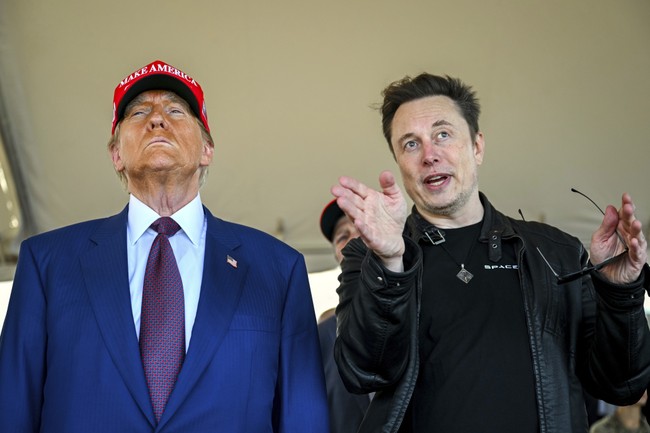Controversies Surround USAID and DOGE's Bold Moves
Elon Musk is at the center of a storm as USAID faces allegations ranging from inefficiency to grave misconduct. Discover the unfolding saga with Trump's administration and its sweeping changes.
Published February 04, 2025 - 00:02am

Image recovered from townhall.com
In recent months, the US Agency for International Development (USAID) has become the focal point of controversies spurred by Elon Musk and the directives of the Trump administration. Reports from various corners suggest that Musk's Department of Government Efficiency (DOGE) is conducting aggressive audits and operational changes at USAID. The drive, which has the Trump administration's backing, is part of an effort to streamline government operations, but it has sparked significant debate over both its motives and its implications.
USAID, established during the Cold War, has often been mired in political contention. Initially tasked with countering Soviet influence through foreign assistance, the agency's role has notably extended over the years. It has operated in roughly 120 countries, disbursing over $40 billion in humanitarian aid in recent fiscal years alone. However, Elon Musk's involvement through DOGE has led to heightened scrutiny over its operations. Musk has unabashedly criticized the agency, even labeling it a 'criminal organization.'
Central to this drama is the Trump administration's endeavor to drastically curb government overspending, which they argue has been a sinkhole of inefficiency. Critics argue, however, that the actions have been overtly partisan, seeking to undercut the agency's role in promoting left-leaning political interests globally. The DOGE has reportedly uncovered instances of alleged financial mismanagement at USAID, although these claims remain hotly disputed.
Attention has also focused on the administrative revamp inside USAID, as Musk's team pressures the agency's officials who resist mandated transparency reforms. This has included placing dozens of senior employees on administrative leave for trying to sidestep executive orders. The situation reached a flashpoint when some USAID security officials denied DOGE personnel access to secure areas, leading to significant personnel reshuffles.
Musk's allegations that USAID funded the development of biological weapons, including COVID-19, have added a layer of gravity and controversy to the unfolding situation. These explosive claims have intensified scrutiny from political figures and the media, leading to heightened rhetorical battles over the validity and consequences of such allegations.
Despite the contentious atmosphere, the Trump administration remains committed to its thorough overhaul of USAID, which was initiated on the first day in office. A 90-day freeze on foreign assistance, compounded by forced furloughs and program suspensions, underscore the determination to recalibrate America's foreign aid apparatus according to their vision. While Secretary of State Marco Rubio has sought to maintain essential life-saving aid, operational ambiguities and fear of long-term aid eradication linger.
The contractions within USAID have not gone unnoticed globally. The suspension of critical programs, especially in regions like Sub-Saharan Africa, which heavily rely on US assistance, have raised concerns from international stakeholders. Moreover, the shuttering of migrant support operations in Latin America has alarmed human rights advocates.
The political narrative surrounding USAID is further fueled by Musk's penchant for employing provocative rhetoric, often branding longstanding institutions and figures as politically motivated. Democrats and critics argue this as an overreach of executive power, warning it could erode America's longstanding soft power diplomacy and undermine US global standing. The merging of political and business interests, especially Musk's unique advisory position to President Trump, adds complexity to the governance questions around the Department of Government Efficiency.
As changes at USAID unfold, the broader implications of these reforms on US foreign aid policy remain the subject of intense debate. Will these measures indeed remove wastefulness and streamline government functions? Or do they represent a deeper move towards concentrating power and sidelining dissent? These unanswered questions keep the saga at USAID a poignant issue of our times.





